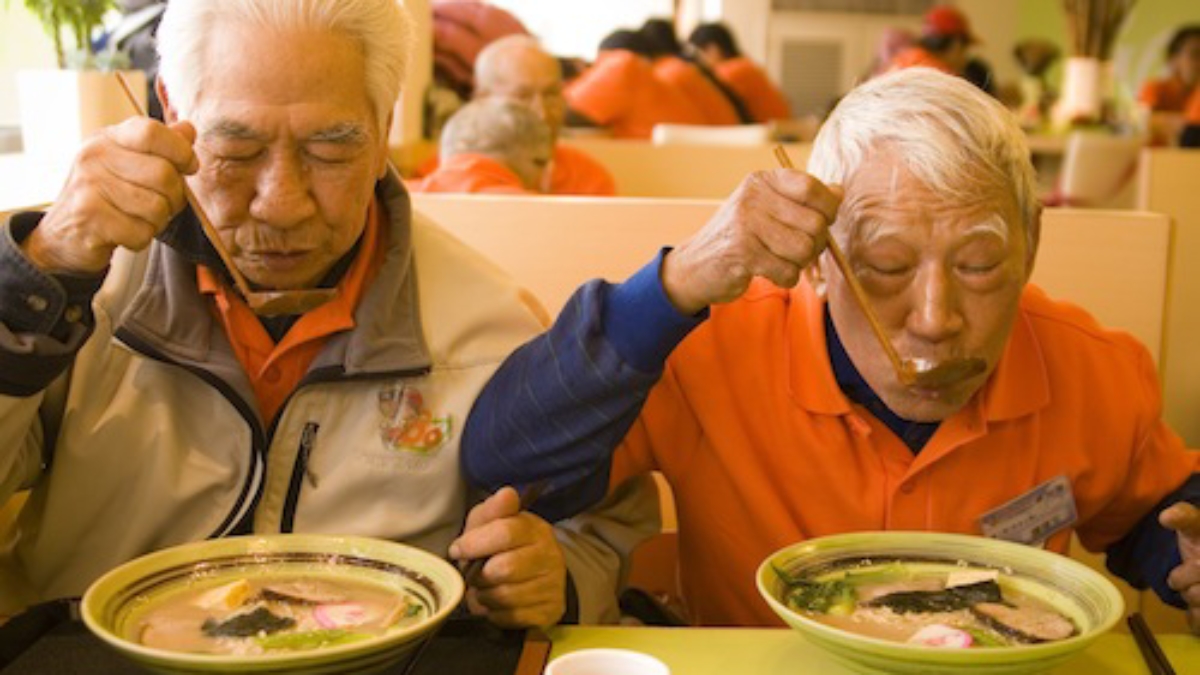by CHO Tingwu
Taiwanese cinema has had many lives. Before Taiwanese New Wave swept world cinema in the mid 1980s, cinema of Taiwan had gone from political propaganda, to postwar Taiwanese melodrama, the Huangmei Operas, the “Healthy Realism” promoted by KMT government, and even genre films such as wenyi pian, wuxia, and social realist films.
As Taiwan struggled with globalization in welcoming the new millennium, Taiwanese cinema experienced its gloomy days. Since the mid 1990s, Hollywood blockbusters have taken over theaters in Taiwan, resulting in only 15-20 films made in Taiwan each year. The depression continued until 2007, when the local-production CAPE NO. 7 (2008) hit theaters and broke the box office record in Taiwan, during which Taiwan has developed its unique documentary culture as fill-ins in the theaters for dramatic features.
This year, AAIFF introduces the new generation of Taiwanese directors who not only inherited the naturalistic style of Taiwanese New Wave, but also the melodramatic tension and popular culture from early Taiwanese cinema. All features selected depict everyday lives with local color under close observation through the camera lens, with musical elements reminiscent of early popular cinema. Director of TOUCH OF THE LIGHT (2012), CHANG Jung-Chi, attributes the thematic familiarity of different generations of filmmakers to the attachment and memory of the home soil. What is more, the younger generation has brought with them new energy from transnational collaborations. The selection of Taiwanese films this year is a heart-warming surprise that covers horizontally and vertically, crossing the boundaries of time, genre, and style, the spectrum of Taiwanese Cinema most accessible to all audiences.
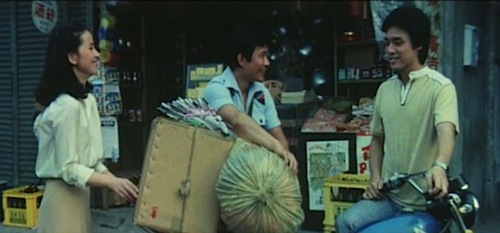
In retrospect, LEE Hsing’s GOOD MORNING, TAIPEI (1979), starring Hong Kong pop singer Kenny BEE and Taiwanese star Joan LIN, tells the story of love and struggle of youth with popular tunes, and captures the urban landscapes and sounds of Taipei City in the late 1970s. Director HOU Hsiao-Hsien and writer HSIAO Yeh both worked on the production of GOOD MORNING, TAIPEI and have helped continue the neo-realistic style and social concerns of the later Taiwanese New Wave.
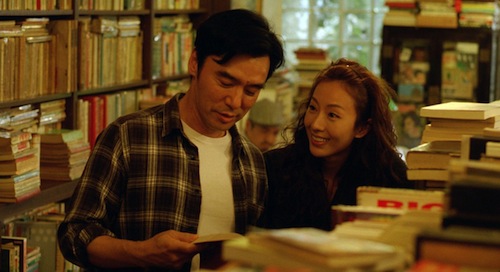
30 years later, Kenny BEE and LEE Lieh (the supporting actress in GOOD MORNING, TAIPEI), starred again in TOGETHER (2012) as a married couple who finds sparks of love and passion for life again in their affairs with other people. Both films paint contemporary urban scenes with a realistic touch that turns the ordinary details of life into sweet and insignificant moments. HSU Chao-jen, director of TOGETHER, said he was deeply influenced by New Wave directors that he worked with, such as Edward YANG and CHANG Tso-chi. In TOGETHER, humanist concerns are embedded in long takes and multifaceted characters as a gesture to the masters of Taiwanese New Wave.
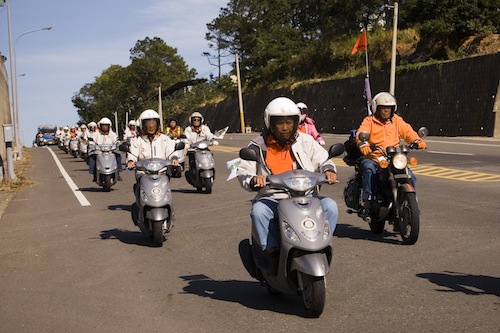
GO GRANDRIDERS (2012) is a 2012 Taiwanese blockbuster that shows not only the commercial appeal of documentary films but also the unique documentary tradition in Taiwan. The documentary originated from a project from Hondao Senior Citizen’s Welfare Foundation to help promote care for the elderly. Seventeen “grand-riders” with an average age of 81 were chosen to go on a 13-day journey around the island of Taiwan by motorcycle. Unexpectedly, the 15 minute short project was expanded into a feature-length-documentary that rewrote box office history for Taiwanese documentary and introduced to the audience a group of passionate, funny, and admirable “grand-riders.”

The field of documentary has also been the incubator for feature film directors. In Taiwan, the use of structures and dramatic components, the close observation, and the passion for challenges in making documentaries have enabled many young documentary filmmakers, such as Ahmeow LIN (director of JUMP! BOYS and JUMP ASHIN!) and HOU Chi-jan (director of TAIWAN BLACK MOVIES and WHEN A WOLF FALLS IN LOVE WITH A SHEEP), to become mature and innovative directors. The most stylistically creative film in the selection this year is the 2012 Taipei Film Festival’s Audience Choice Award winner, TOUCH OF THE LIGHT. Director CHANG Jung-Chi worked with French cinematographer Dylan DOYLE to play on the light and shadow that reflect the world of visually impaired pianist, HUANG Yu-Siang. As a director who has previously worked in documentary filmmaking, CHANG brings attention to the details that helped build the emotional dimensions of characters. After working with HUANG in OVERTURE (2005) and THE END OF THE TUNNEL (2008), a documentary and short film based on HUANG’s life story, CHANG has learned to turn the transient moments of documentary into crystallized memories. It is the first time Chang is involved in the pre-production, post-production, and film promotion processes of a feature film, and he has found the Taiwanese film industry to be once again encouraging to different genre films and films of more commercial potentials. Along with other emerging directors, Chang is starting to find the genre and film language that touch upon and communicate with the new generation of audiences.

In the short film section, AAIFF introduces the TAIWAN CINEMA DAYS series, which focuses on the stylistic potential and self-reflexivity of new directors. The five works pay tribute to childhood in their own ways: some with animated colors in an imaginary world and others with cold neon lights in Taipei City. HSU Chang-Hao’s RAIN is a story about the loss of tradition and the discovery of hope. Coming from a Han Chinese background, HSU finds in Atayal stories the universal attachment to one’s cultural roots. The common concern for human condition becomes a mirror for reflection and channel for communication in a multi-cultural society like Taiwan. The film is not only about the dilemma of aboriginals in Taiwan, but also the search for myth as a bridge into the future for younger generations. For young directors like HSU, filmmaking is a way to change society, and therefore it is important to stay true to the story and the central message rather than follow the trends.
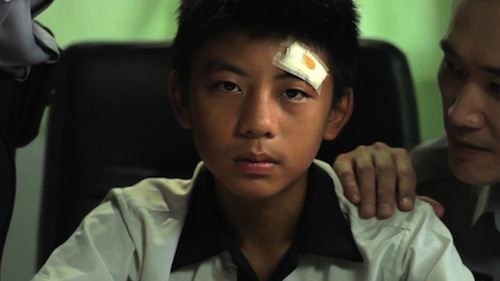
For GUO Shang-Sing, director of HOW I LEARNED TO TELL A LIE, the landscapes of Taiwan and the works of the Taiwanese New Wave directors are the nature and nurture for young directors. What is more, the film market is unpredictable and irrelevant to the quality and depth of works. GUO’s work shows great ambition in the visual styles and themes. The saturated color defamiliarizes the country landscapes of Taiwan for local audiences, and yet the long, cold gaze into the characters is reminiscent of the spirit of Taiwanese New Wave—especially that of Edward YANG—a tragic revelation to the absurdity of a disciplinary society. As a university lecturer who interacts with young art students everyday, GUO is less optimistic when it comes to the future of the Taiwanese film industry. However, as GUO discusses filmmaking in the interview with AAIFF, he still expresses passion and stays true to his ideal, which is common for all filmmakers in Taiwan, regardless of their generation: “instead of trying to balance art with entertainment, the producers should market every film as if it is their own unique child,” GUO says with sparks in his eyes, “with unconditional love.”
CHO Ting-Wu is a PhD candidate at the Department of Cinema Studies at NYU. She is working as a committee member for the North American Taiwan Studies Association (NATSA) since 2013, and has written on topics of translocality, aesthetics, and subjectivity in the cinema of Hou Hsiao-Hsien, Hu Tai-li, and other Taiwanese filmmakers. She is also researching on the relationships between Asian independent films and international film festivals.
TAIWANESE FEATURE SELECTION
Good Morning, Taipei (1979)
Touch of the Light (2012)
Together (2012)
Go Grandriders (2012)
TAIWAN CINEMA DAYS SHORTS PROGRAM
Rain
The Box
Seed
How I Learned To Tell A Lie
When the Cold Wind Blows

